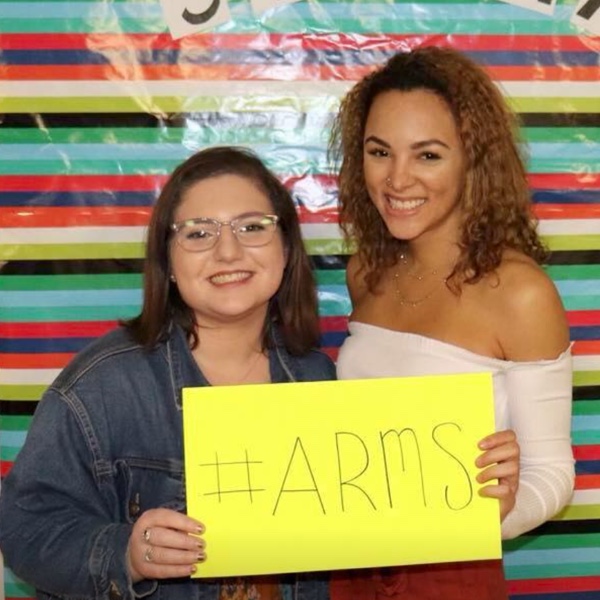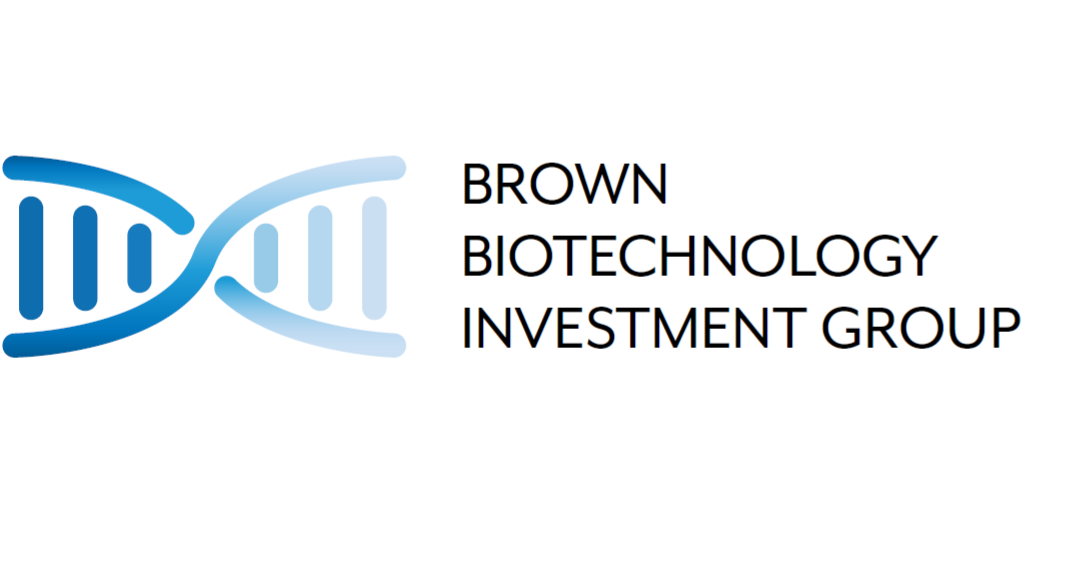by Tori Gilbert | Oct 26, 2018 | Student Experience
Have you met Samanee Mahbub ’19? She’s one of nine Nelson Center Peer Entrepreneurs In Residence. PEIRs are young, experienced mentors who are available to support their fellow founders. (If you’d like to chat with them about your venture, kick around a nascent idea, or talk startup life in general—drop them a line. You can email them or sign up for their office hours here.) When she’s not studying history, you can usually find Samanee working on her own company, a fem-care start-up, or helping other students explore careers in start-ups or entrepreneurship. During her time at Brown, she has had the unique opportunity to work at eight different companies — having roles across product management, sales, and marketing — as well as starting a social venture that employs single moms in Providence to knit hats, a subletting marketplace, and a freelance photography business. She can speak to many experiences, including what it’s like working on product marketing at Slack, one of the fastest growing tech companies or founding a company with six co-founders.

If you’re considering working at a startup but don’t know where to start, attend her talk on Oct 31). If you want to learn how to turn your idea into a sustainable business, sign-up for Samanee’s office hours. Thursday’s 3:00 – 5:00 PM.
Samanee is happy to help with bottom-up research, marketing, and sales strategy, pitching (she pitched at the Brown Venture Prize!), applying for Nelson Center explore and expand grants, or to talk about what it’s like to work in tech as a non-technical person and POC woman.
by Tori Gilbert | Oct 17, 2018 | News from Nelson, Student Experience
Each year at Rough Draft Ventures, General Catalyst’s student founder focused program, meets hundreds of students who are shaping entrepreneurial communities across campuses in Boston — hackathon organizers, entrepreneurship club leaders, code club organizers, and more. Of those students, they select ten to join the program as Venture Fellows.
Venture Fellows are ambassadors for RDV and fellow entrepreneurs on campus, helping to identify and support student founders. They work closely with student groups and collaborate on events and programs to bolster the student entrepreneurship community. Every other week, Venture Fellows hear pitches from top student founders and make recommendations for backing highest potential companies.


Annabel Strauss ‘19 was a selected student from Brown, and she studies Computer Science and Economics. She has spent her summers in tech as a software engineer intern at Facebook, OkCupid, and Instagram. Annabel is passionate about women’s empowerment, particularly in tech. In high school, she was a club head for Girls Who Code and founded a conference for NYC young women in tech called Bit by Bit: Breaking the Barrier for Girls in Tech. At Brown, Annabel leads the Community Team of the Brown Entrepreneurship Program. She enjoys getting to know all the student founders on campus and talking to them about their ventures. Read more about the other Boston Venture Fellows, here.
by Tori Gilbert | Oct 4, 2018 | News from Nelson
CEIBS Research Fund: “Aged to Perfection: Benefits from An Inactive Population” in Honour of Dr. Gerard Van Schaik, Co-Chairman of CEIBS Board of Directors Future of Work and Aging: New Challenges and Opportunities
Primary Investigator: Banu Ozkazanc-Pan, Ph.D., Visiting Associate Professor of Sociology and Faculty, The Jonathan M. Nelson Center for Entrepreneurship, Brown University; Associate Professor of Management, College of Management, University of Massachusetts
Co-Primary Investigator: Jennifer Nazareno, Ph.D., Assistant Professor, School of Public Health and The Jonathan M. Nelson Center for Entrepreneurship, Brown University
Their study is titled: Future of Work and Aging: New Challenges and Opportunities


In recent years, increased attention has been focused on the Future of Work or those new conditions of work that will arise due to the rise and use of technological advances, such as artificial intelligence (AI), virtual and mixed reality, blockchain and others. The concerns and opportunities arising out of these advances are the replacement of human workers with automation or robots with advantages such as lower costs, less errors and increased productivity. At the same time, humans are now living longer, requiring more resources in later life, and relying on inadequate medical, social and economic systems and structures to take care of their health and well-being. Such workers, who were indispensable to the growth of economies, are now findings themselves out of the workforce, becoming replaced by younger generations as well as non-human workers. The convergence of these two important trends warrants further attention and research to understand the challenges and opportunities arising out of the growth of technological advances in the context of rapidly aging populations of societies that need long term care. What does the Future of Work hold for an aging workforce as rapid technological and social changes impact how work gets done and how societies respond? Already, research has demonstrated that there could be growing inequalities as automation and AI are being used to make decisions impacting the livelihood of communities, such as how welfare is distributed and how people become labeled as potential future criminals. There is also concern about a future that is ‘jobless’ for humans as production becomes fully automated in certain sectors. These concerns become amplified for aging populations in industrialized and wealthy nations who require increased resources, such as long term care and health services, from caregivers that often have migrant backgrounds. Research in this area has shown that often caregivers do not have enough savings to retire and continue to take care of clients who are, in fact, sometimes younger themselves. This project combines the expertise of the principle investigators in the areas of technology and healthcare and aims to understand the implications and consequences of rapid technological and social changes as they relate to an aging workforce in the context of Future of Work. The PI, Prof. Banu Ozkazanc-Pan, has expertise in studying technology and examining the role of technology in creating barriers and opportunities for different segments of the population. The co-PI, Prof. Jennifer Nazareno, has carried out research examining the conditions, opportunities and challenges of aging populations and their health and long-term care needs.
The aims of this project are to 1) understand the ongoing trends at the intersection of Future of Work and aging population, 2) identify opportunities for engaging the aging population as changes in the nature of work take shape via technological advances, and 3) identify challenges for an aging population with respect to their ability to contribute to the workforce.
Data collection will take place via a combination of qualitative and quantitative approaches and will be predominantly in the U.S. Interviews will take place with technology CEOs and entrepreneurs, Mayors of various size cities in the U.S., and healthcare providers and workers. The PI has previously worked technologists and Mayors and will utilize her networks to gain access to at least 25 individuals to understand their points of view, experiences and practices or policies. She is also part of a Future of Work council in the city of Boston and will conduct focus groups with members who represent different sectors of work. The co-PI has carried out extensive research on long-term care and will access healthcare providers and workers to conduct interviews with at least 25 of them. Both investigators will also conduct interviews with 20-25 individuals over the age of 65 to gain an understanding of their experiences. Quantitative approaches will be utilized to illustrate trends and changes in the workforce with regard to technological advances and social changes. These trends will be identified using data from the American Community Survey as well as other databases. Given that both investigators have carried out research in relation to technological changes and long-term care, preliminary findings from previous work indicates that technological and social changes will most likely push out older workers from the tech sector while also increasing demands on the labor and services of low-wage long-term care givers. This project will provide in-depth research into the convergence of these two trends and highlight potential opportunities as well as challenges that will face societies and organizations. Any publication resulting from the project will acknowledge the financial support of the CEIBS research fund on “Aged to Perfection: Benefits from An Inactive Population” in Honour of Dr. Gerard Van Schaik, Co-Chairman of CEIBS Board of Directors.

by Sheila Haggerty | Oct 4, 2018 | Student Experience
This past spring, Mirabella Roberts ‘20 and Nicole Spring ‘20.5 met for coffee to talk about a class assignment. As the two got to chatting, they discovered a shared passion for using art as a means to talk about their own narratives of mental illness. They realized that despite the need for constructive conversations on mental health –like the one they had that morning in the Blue Room– an organization that fought to end the stigma through art did not exist.

That same day, they immediately began the process of establishing Art to Reduce Mental Health Stigma (ARMS). After hosting a successful test event in an Interactive Art Gallery, the two incorporated ARMS as a 501(c)(3) Domestic Nonprofit Corporation in Rhode Island. Since then, the two, with help from student leaders Bria Metzger, Melissa Sierra, Jordyn Goldstein, Marian Chudnovsky and Gabby Ortiz, the group hosted Express Your Psych Open Mic to kick off the 2018-2019 school year.

The event was incredibly successful, with 100% of attendees reporting they would return for future ARMS events and a majority of the attendees reporting that they left with a newfound ability to hold productive conversations regarding the stigma surrounding mental health. ARMS is planning on hosting a slew of events from fashion design workshops to dance performances. They are looking to recruit volunteers, if you are interested please email arms.at.brown@gmail.com. You can also get learn more by visiting https://www.gofundme.com/arms-startup.

by Tori Gilbert | Oct 1, 2018 | Announcements, News from Nelson
The Brown Biotech Investment Group (BBIG) is a group of students interested in the intersection between healthcare and entrepreneurship. Through Nelson Center’s advisory support, the group will educate and engage its members on biotechnology and investments while also providing a tangible benefit to the University. BBIG members come from diverse academic backgrounds and focus on interdisciplinary collaboration to help members advance their learning and career goals. Check them out on Facebook.








